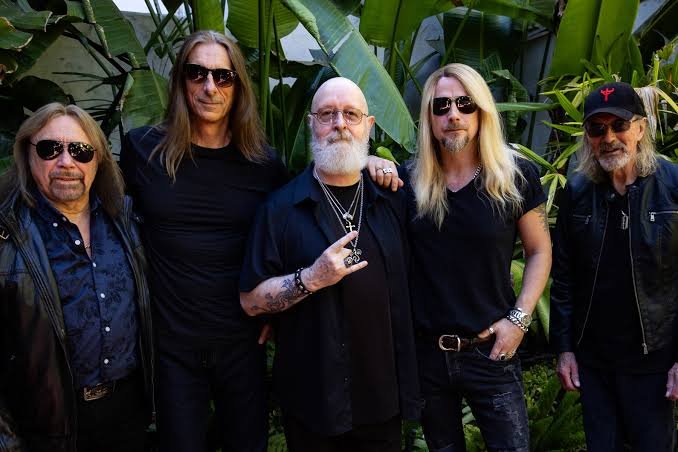𝑯𝒐𝒘 𝒅𝒊𝒅 𝒕𝒉𝒆 Judas Priest 𝒑𝒍𝒂𝒈𝒊𝒂𝒓𝒊𝒔𝒆 𝒕𝒉𝒆𝒊𝒓 𝒐𝒘𝒏 𝒔𝒐𝒏𝒈?𝑾𝒂𝒕𝒄𝒉 𝒏𝒐𝒘: 𝑪𝒉𝒆𝒄𝒌 𝒊𝒏 𝒕𝒉𝒊𝒔 𝑨𝒓𝒕𝒊𝒄𝒍𝒆…
—
**How Did Judas Priest Plagiarize Their Own Song? Music Fans Stunned by the Band’s Bizarre Legal Twist**
In a strange and unexpected twist that has left fans, critics, and even copyright lawyers scratching their heads, legendary heavy metal band **Judas Priest** has become the subject of a surreal controversy: the band is accused of **plagiarizing themselves**.
The confusion stems from a recently released track titled **”Flames of Vengeance,”** which appears on the band’s latest studio album. Diehard fans were quick to point out that the song bears an uncanny resemblance to one of their earlier hits—**”Hell Patrol”** from the 1990 album *Painkiller*. So much so, in fact, that even AI music recognition platforms flagged it as a potential copyright violation… by Judas Priest.
The situation escalated when a music publisher mistakenly filed a formal plagiarism complaint through an automated system, claiming “Flames of Vengeance” illegally used “musical and lyrical elements” from “Hell Patrol.” The kicker? Both songs were written by **Rob Halford, Glenn Tipton, and K.K. Downing**—the same songwriting team that’s been crafting Judas Priest’s anthems for decades.
“It’s the most Judas Priest thing ever,” laughed one fan on social media. “Only these guys could be so metal that they accidentally rip themselves off.”
According to a band spokesperson, the issue began when a **new AI-based copyright monitoring tool** flagged the similarity during the album’s global rollout. The automated software issued a takedown notice to streaming platforms, briefly removing the track from Spotify and Apple Music. The band’s legal team had to step in and prove that the “plagiarized” song was, in fact, written by the same people who wrote the original—35 years ago.
“This is a hilarious but real example of how technology can misfire,” said **Alan Price**, a copyright lawyer familiar with music law. “It’s not uncommon for artists to revisit riffs or themes. But now that AI is scanning millions of tracks for similarities, artists could end up accidentally suing themselves.”
Band frontman **Rob Halford** addressed the situation with good humor during a recent interview. “We always knew we’d catch heat for sounding like ourselves,” he joked. “But getting hit with a copyright strike from *our own catalog*? That’s a new one—even for us.”
The situation has sparked broader conversations in the music industry about the use of AI in copyright enforcement, with many arguing for **more human oversight** in the process. Critics say this kind of error highlights how easily automated systems can misinterpret artistic intent, especially in cases where artists draw on their own past work.
Meanwhile, Judas Priest fans have embraced the fiasco, launching a meme campaign titled **#SuedByMyself** and turning the controversy into another chapter of the band’s rebellious legacy.
As for the track in question? “Flames of Vengeance” has returned to streaming platforms with its full credits restored—and a newfound infamy as the **first heavy metal song to accidentally sue itself**.
Only Judas Priest could be this iconic… and ironically litigious.
—


